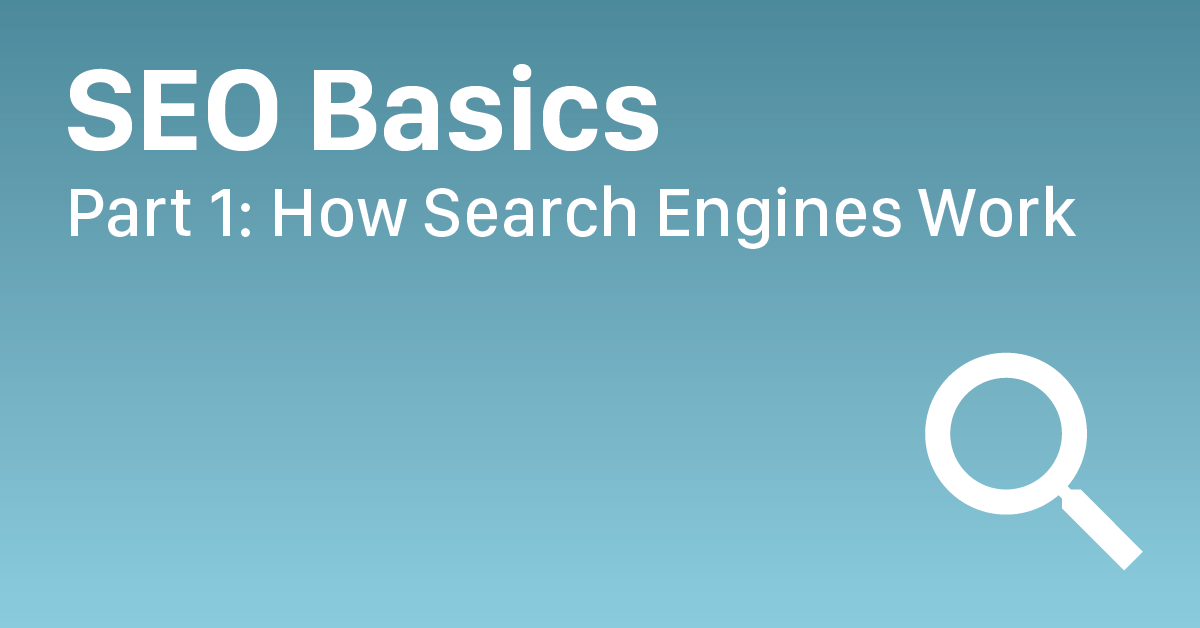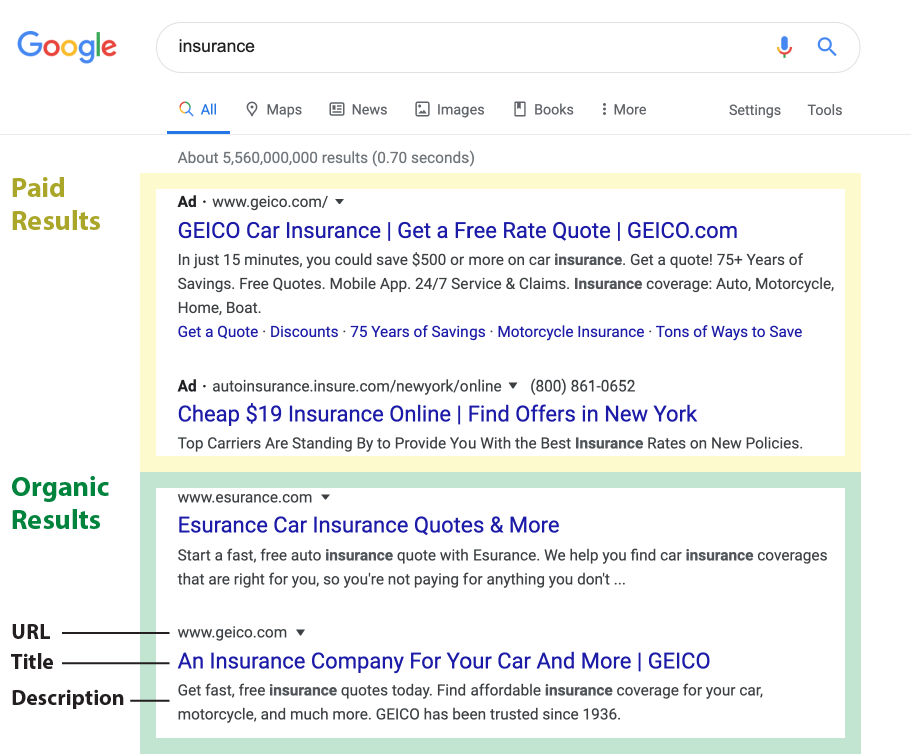Posts
SEO Basics 1 – How Search Engines Work

This is the first post in a series about the basics of search engine optimization. In this post, we explore what a search engine is and how it works.
Nicholas Molina
November 17, 2019
Why you should care about SEO
You should care about SEO because 93% of consumers and 89% of businesses use the internet to research vendors before making a purchase. Effectively all that research begins with a search engine. Optimizing your website for search is a powerful and cost-effective tool to increase website traffic and ultimately revenue. After all, if your customers can’t find you, they can’t buy from you.
Before we get into search engine optimization, we need to understand some search engine basics. You can’t optimize your website for search engines if you don’t know how search engines work.
When we talk about search engines, we’re often talking about one search engine in particular – Google. Google dominates the industry with over 90% market share.
The Answer Machines: What a Search Engine is and How it Works
Search engines are question and answer programs that help people find information on the internet. In search engine parlance, the user’s question is called a query, and the search engine’s answer is called a result. The results of a query are presented on a Search Engine Results Page or SERP.
Breaking down the SERP. There are two types of search results: paid and organic. Paid refers to advertisements and organic refers to unpaid or ‘organic’ results. SEO is an organic strategy; SEM or search engine marketing usually refers to a paid strategy.
Search engines determine the best results for a query using a search algorithm. The search algorithm evaluates webpages against the query’s search terms and assigns each webpage a relevancy score based on how well it answers the query. Webpages with the highest score are ranked first in the SERP.

How important is SERP rank? Very. The first ten results in the SERP receive 71% of clicks with 67% of clicks going to the first five results.
The internet is too big for search engines to evaluate websites in real-time. Instead, they collect and categorize website data in advance and store it in a large database called an index. Search engines build their index using web scanning programs called web crawlers or bots. Bots scan the web gathering and analyzing webpage content to store in the index where it is categorized for use by the search algorithm.

Search Optimization: The Good, The Bad, and the Banned
Search engines determine the best result to a query by ranking websites according to a relevancy score. Search engines determine relevancy score based on a website’s key signals of relevancy and quality. Search engine optimization, then, is optimizing those signals to show the search engine your website has the best answer to a user’s question.
The incentives are easy to understand, help search engines provide their users with better answers and they’ll reward you with a higher SERP rank. Done correctly, search optimization is a win for everyone, users get more accurate answers, website owners gain more traffic, and search engines engage their users to serve them more ads.
But there is a wrong way to do search optimization where everyone loses. It’s called Blackhat SEO, which is any attempt to exploit a search algorithm to unfairly rank your website higher than it deserves. Blackhat SEO may provide a website with a temporary boost in rank but it always causes harm in the long run.
Why?
Think about it. If a website needs to cheat to get a top rank, it’s because it doesn’t provide a good enough answer on its own. If search engines don’t provide their users with good answers, they’re likely to lose them – and any ad revenue they would bring in. To protect their userbase and revenue stream, search engines ruthlessly punish Blackhat tactics with rank penalties and index bans. We’ll cover Blackhat tactics in more detail throughout the series, for now, the important thing to know is not to use them.
Coming Up
Now that we’ve learned how search engines work and what search optimization is, we’ll dive into the key signals search engines use to determine SERP rank and what you should – and shouldn’t – do to optimize them.
Our next post looks at On Page SEO, the importance of content, keywords, and HTML structure.